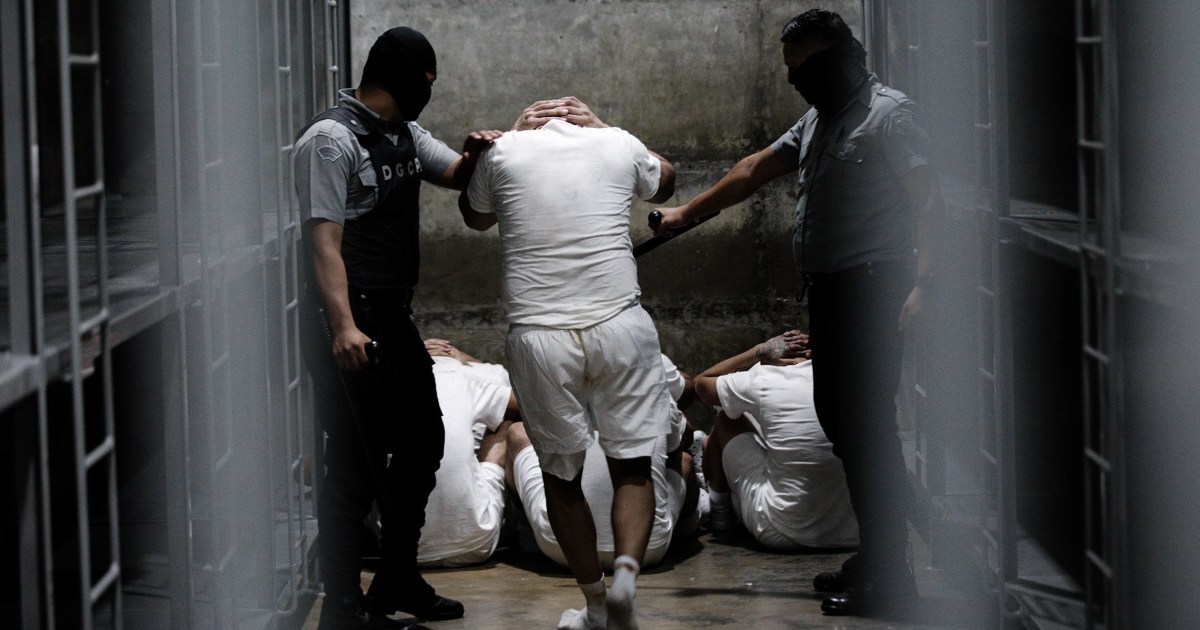Mariela Villamizar is deeply concerned about her son’s health after he was abruptly incarcerated in a Salvadoran prison, leaving her with no means of contact with him. Wladimir Vera Villamizar, a 33-year-old welder from western Venezuela, battled a debilitating tuberculosis infection that resulted in severe lung damage, as reported by family and medical documents obtained by NBC News. His condition deteriorated after he entered the United States seeking asylum last year, and he faced worsening health during his time in immigration detention, according to his mother.
In January, following Vera’s release with an ankle monitor, he experienced a medical emergency requiring hospitalization. Medical records indicate that he underwent an emergency right pneumonectomy, the complete removal of his right lung. “The operation took over five hours,” Villamizar shared with NBC News from her home in Venezuela. “God worked a miracle, and he came out OK, but the recovery was not what he expected.”
However, just weeks after the surgery and shortly after President Donald Trump assumed office, Vera was detained again. This occurred after Trump invoked emergency wartime powers in March, leading to the deportation of over 200 Venezuelan men to El Salvador’s notorious supermax facility, known as the Center for the Confinement of Terrorism, or CECOT. Vera’s name appeared on a deportee list leaked to CBS News.
“Since the last time I spoke to him on March 13, I’ve gotten no information about him,” Villamizar said. “I don’t know how he’s doing, what condition his health is in, how they’re holding him. Whether he’s received any medical attention — or if they even have that over there in El Salvador. I just don’t know.”
Once at CECOT, all inmates are held in strict isolation, without any access to legal representation or contact with family members, raising significant concerns regarding Vera’s health care. The men were deported under a controversial presidential order using the Alien Enemies Act of 1798, a wartime measure that allows for the suspension of certain legal rights for noncitizens from unfriendly nations. The legality of such actions is currently being challenged in several federal lawsuits.
In response to inquiries from NBC News, Tricia McLaughlin, Assistant Secretary for Public Affairs at the Department of Homeland Security, stated that Vera “self-admitted to spending 7 years in prison on murder charges in Venezuela” and is affiliated with Tren de Aragua, regarded as one of the most violent gangs globally. Villamizar admitted her son had served a prison term for homicide in Venezuela, but she insists the accusation was false and denies he is involved with Tren de Aragua.
Constitutional rights attorneys argue that the prior criminal histories of those deported to CECOT should not undermine their due process rights. “The fact that he had a prior criminal conviction can in no way deprive him of his procedural rights, including the right not to be sent to his potential death in a third country,” asserted Baher Azmy, Legal Director for the Center for Constitutional Rights. “But for this administration, the fact of a prior criminal conviction is enough to sweep away any legal protections for any person in this country.”
Regarding Vera’s medical condition, McLaughlin stated, “This criminal illegal alien was in good health at the time of his deportation to El Salvador,” directing questions about his current care back to the State Department, which then referred them to Homeland Security. However, the department declined to comment on Vera’s situation or confirm his location at CECOT.
Vera’s case is emblematic of the plight faced by numerous Venezuelan families who have been demanding updates for over 100 days from life-threatening detention conditions at CECOT. Following the removal of a lung, recovery typically requires rigorous medical management over several months.
Experts consulted by NBC News, including thoracic surgeons and primary care physicians, voiced grave concerns about detaining a patient so soon after pneumonectomy surgery. “It’s the kind of procedure you do maybe once a year,” remarked Dr. Kiran Lagisetty, a general thoracic surgeon at the University of Michigan. “You know the name of the patient and you worry about them, because whenever you get a phone call about that, it’s probably not something good.”
His family reports that following Vera’s detention, symptoms reemerged, including a cough that had initially subsided post-surgery. Medical guidelines warn that recently operated pneumonectomy patients should avoid crowded spaces like detention centers to reduce the risk of respiratory infections, which can endanger both the remaining lung and the surgical site.
Dr. Lagisetty emphasized the seriousness of any resurgence of symptoms, stating, “When a patient starts coughing, we treat it very seriously.”
Alongside Vera’s case, many others have been documented by Together and Free, a nonprofit organizing legal and case management support for families affected by CECOT’s actions. Reports indicate several detainees have pre-existing medical conditions, including asthma, diabetes, and muscular dystrophy, with advocacy groups underscoring the risk posed to detainees lacking adequate medical care.
“These types of chronic conditions require regular access to medications and high-quality medical care, or patients can face either immediate life-threatening complications or long-term complications that diminish their quality of life,” said Dr. Nora V. Becker, an assistant professor of internal medicine at the University of Michigan.
Michelle Brané, executive director of Together and Free, expressed concern for the families impacted by these deportations, stating, “are terrified that they are at serious risk, not only from the general conditions at CECOT but from lack of appropriate medical treatment. Their lives are at risk because the United States put them there.”

